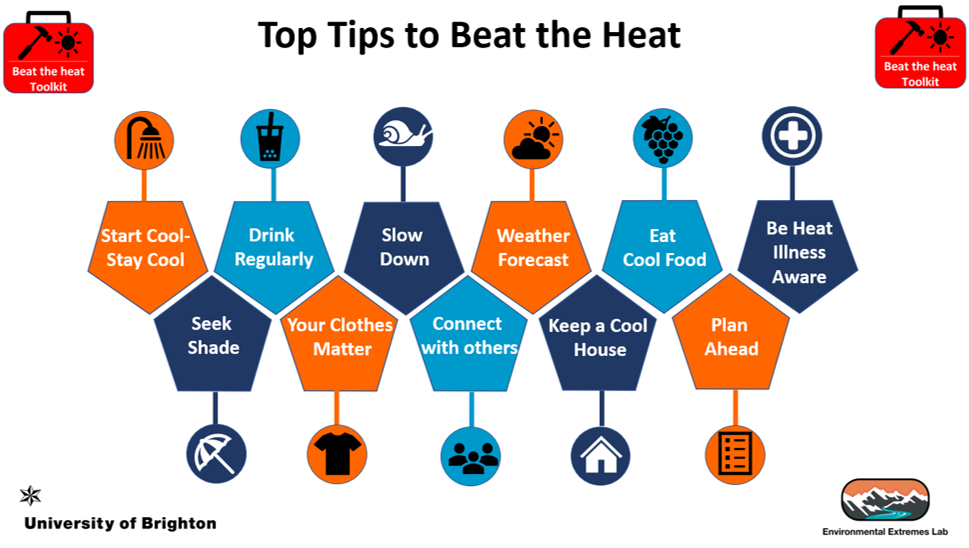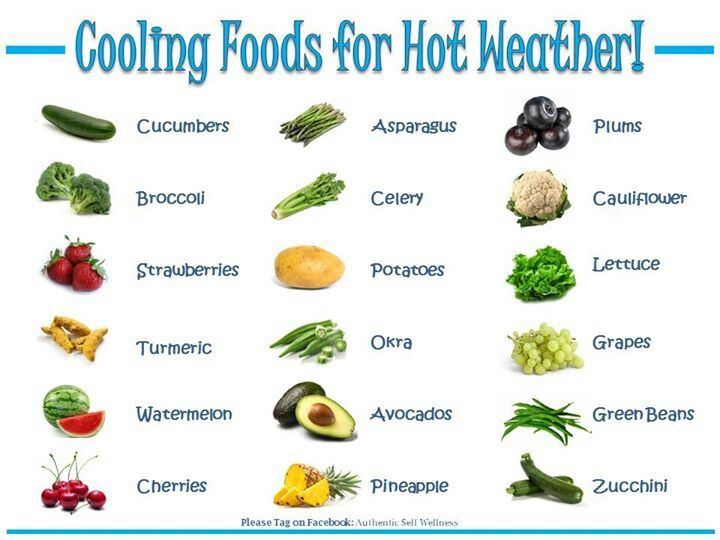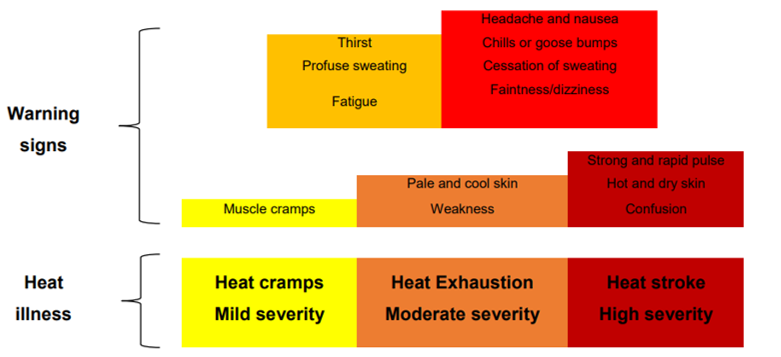The heat wave we are currently experiencing is expected to stay with us until next Tuesday, with ambient temperatures of 35°C in some parts of the country and even 40°C in London. This is with limited cloud cover from tomorrow through to Tuesday and so presents a considerable challenge to the human body. Below are some simple tips to help everyone cope better with the heat. A lot is common sense, but it is always good to be reminded.

The heat wave we are currently experiencing is expected to stay with us until next Tuesday, with ambient temperatures of 35°C in some parts of the country and even 40°C in London. This is with limited cloud cover from tomorrow through to Tuesday and so presents a considerable challenge to the human body. Below are some simple tips to help everyone cope better with the heat. A lot is common sense, but it is always good to be reminded.
Start cool-stay cool 🥶: A cool shower in morning to start the day, keep cool inside (have ice pops/ice slurries/iced drinks), keep cool outside (use handheld fans/holding ice packs/ice towels round neck, take off shoes and stand on cold floor/ cold water, submerge hands and wrists into cold water, bring a bottle of frozen water to school/work that will stay cooler for longer). Have a cool shower before going to bed and you will sleep better.
Seek Shade 😎: Keep out of the direct sunlight (inc. wear a hat), avoid sitting in cars and closed spaces / rooms with little airflow, use sunscreen.
Drink Regularly 🥤: Drink water (and not alcohol or caffeine-based drinks) more than normal (have a bottle with you everywhere you go) and remember, your nose knows – if wee smells you are dehydrated!
Your Clothes Matter 👕: Less (single layer), loose (breathable fabrics) and light (reflective colours), discourage pupils from wearing a blazer or schools could move to PE kit. Do not wear a tie or formal clothes if possible.
Slow Down 🐌: Use energy wisely and try not to exert more effort than you need to. If exercising, choose earlier or later in the day and lower intensity – lower expectations of what you can achieve.
Connect with Others 🔎: Look after yourself, older people, the young and those who may have an illness – all who cannot pick up the cues of how hot or thirsty they are and are more at risk of incurring a heat illness.
Weather Forecast 🌤️: Listen to the news and weather forecasts so you are aware of how hot it will be and how long it will last. Heatwaves can affect other services (e.g. buses, trains and other public services) which may have other implications.
Keep a Cool House 🏠: Know how to keep your home cool (close blinds during day, block heat getting in, close doors to rooms you are not using to keep cold air where you need it most, but hang out in evening – as day gets cooler in evening, open house up to cool your home naturally – but still lock up overnight!)
Eat Cool Food 🍉: There are many food types that contain large quantities of water that could help maintain hydration status better alongside what you drink.

Plan ahead 🗒️: Think about your day and what can you do to avoid the sun and/or prevent yourself overheating. What 3 things will work for you?
Be heat illness aware 🚑: It is important to identify the signs and symptoms of minor heat illnesses because this can prevent the onset of the life-threatening condition of heat stroke (from exercise or just the sun). The key is to cool on site where a heat illness occurs. For the worst-case – heat stroke (hall mark signs in absence of a measure of core temperature, is a change in behaviour, the individual appears confused or not responsive, as well as are likely to be very hot and dry to touch) – individuals must be cooled in the first 30 minutes and aggressively with cold water to lower core temperature. Waiting for an ambulance is wasting vital minutes.

The heat illness continuum, with increasing severity from left to right. Figure redrawn from Porcari et al., (2015)
My top tip is to encourage you to stock up on ice pops – they cool from the inside out and outside in – all at the same time!
Dr Maxwell and Professor Nick Webborn have also written four Beat the Heat user-friendly guides, with help from Dr Mark Hayes, for the International Paralympic Committee in 2020 leading up to the Tokyo Paralympic Games.
“I think they would be useful to share with friends and family and to pick and choose, much like a pick n mix, what strategies would work for you,” Dr Maxwell said. “Although they are written for athletes, much is relevant. They are very visual and intended to be accessible. Three of them – keeping cool, staying hydrated, and signs and symptoms of heat illness – would especially help.”
Stay safe and rely on your behavioural thermoregulation to stay cool!
